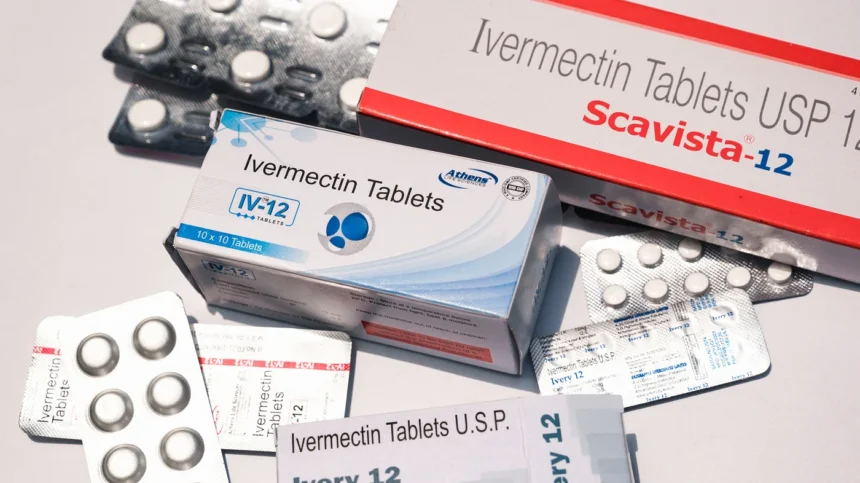Ivermectin, a medicine that has attracted growing public knowledge and significant media coverage during the epidemic, will be discussed in this article.
Once the COVID-19 epidemic started in 2020, scientists, researchers, and medical experts started searching for effective cures against the SARS-CoV-2, sometimes referred to as the coronavirus, that was inflicting the extreme death toll and long-term adverse effects of individuals all throughout the world.
Two oral drugs were investigated at the beginning of the epidemic: hydroxychloroquine and more lately ivermectin 12 mg.
Read on to learn more about ivermectin: how to take it properly, if it may be used to treat COVID-19 in big quantities, and any possible negative effects.
Ivermectin: Overview
Ivermectin comes in two forms: one is prescribed by veterinarians and is only fit and safe for use in animals; the other is given by doctors to treat specific problems in humans.
The material on this page applies to the kind of ivermectin intended for human use.
Sold under the Stromectol brand, ivermectin is a medicine used to treat infections caused by particular parasites such Strongyloides stercoralis and Onchocerca volvulus.
An anthelmintic medication, ivermectin belongs to the Prescription antiparasitic drugs abound and also come in reasonably priced generic form. Stromectol is the brand name corresponding to Ivermectin.
Why should Ivermectin treatment be advised for everyone?
By damaging their muscles and nerves, which also inactivates their digestive system, ivermectin paralysed worms. Recall that not every worm will be killed by ivermectin.
This drug kills their larvae and paralyzes adult worms, therefore slowing down their reproduction and finally lowering the count of worms in human blood, skin, and eyes.
For what other purposes does this drug find application?
The Food and Drug Administration (FDA) of the United States has approved ivermectin to treat worm infections including onchocerciasis and helminthiasis, tropical diseases.
Other diseases such head and pubic lice and scabies, an itchy skin infection caused by a mite, also find usage here. Patients with type 2 rosacea, brought on by Demodex mites and resulting in red pimples or lumps on the face, have also reported success with it.https://thesimplesource.com/
Usually tolerated well, ivermectin is used to treat parasite infections. The FDA has not approved or licensed ivermectin for the treatment or prevention of any viral infection, including COVID-19 in humans and animals since it has not shown to be safe or effective for these uses.
How should one approach using this medicine?
Take Iverheal tablets exactly as directed by your doctor.
Find out from your pharmacist or doctor whether there is anything you find unclear about the given pharmaceutical information. Review the guidelines offered on the medication label. Take this medication as advised; do not take it more or less regularly.
One can get ivermectin as a 3-mg capsule suited for swallowing. The usual dose is one taken empty-handed and with a glass of water.
Treating an illness like onchocerciases sufficiently may need several doses. Should your infection not clear, your doctor can advise an extended treatment plan including more ivermectin doses at 3, 6, or 12 months after the first dosage.
When using ivermectin, what precautions should I take?
Before starting ivermectin treatment, please provide your doctor a thorough inventory of all the drugs you use—including prescription, over-the-counter, herbal, and nutritional supplements.
This helps one to prevent negative drug interactions and adverse effects. Tell your doctor whether you have an allergy to any of the inactive or active components in ivermectin.
Ivermectin has what negative consequences?
Though they are not limited to weakness, dizziness, drowsiness, chest discomfort, uncontrolled shaking, mental changes, muscular aches, nausea, vomiting, diarrhea, constipation, stomach pain, loss of appetite, and bowel control problems, adverse effects of ivermectin Should these Iverheal side effects be severe or recurring, you should see your doctor.
When used to treat onchocerciase, ivermectin side effects include swelling of the face, arms, hands, lower legs, and feet; joint pain and swelling; painful, enlarged glands in the neck, armpits, or groin; eye pain, swelling of the eyelids or eyes, odd sensations in the eyes, and fast heartbeat. Should you experience these side effects, contact your doctor.





